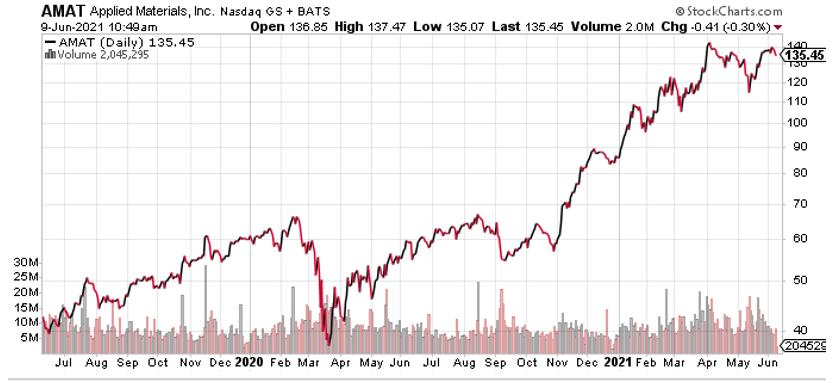American politicians are worried about the rise of China as a tech power. Now, they are finally doing something about the threat.
On Tuesday, the Senate passed the U.S. Innovation and Competition Act, a sweeping $200 billion-plus bill squarely focused on blunting China’s growing influence in new technologies.
The first step is to shift the center of the semiconductor world.
As legislation goes, this bill is a big deal. Despite the current climate of partisan bickering, the Senate passed the bill with a vote of 68-32. And the size of the funding at $247 billion means the package will have teeth.
Yet, it’s the aim that is most encouraging for American tech companies.
Sponsors Sen. Chuck Schumer (D-N.Y.) and Sen. Todd Young (R-Ind.) have been working for two years with industry leaders and congressional committees.
The goal is to take a bite out of the supply chain issues that threaten domestic development of 5G, quantum computing, artificial intelligence, synthetic biology and next-generation semiconductors.
Ironically, shortages of garden variety microprocessors have put the global industrial complex in crisis right now. These chips power simple functions like controlling antilock braking systems on cars or converting signals for electric ovens.
Related post: Digital Transformation Play in Semiconductors
Unfortunately, 90% of the global supply chain is located in Southeast Asia. American lawmakers see fabrication plants running out of China as especially worrisome.
It’s a real-world crisis that resonates on both ends of the political spectrum. From Kentucky to Chicago, furloughed autoworkers understand worrying about small parts made halfway around the globe is a liability. The anti-China rhetoric works, too.
The legislation will provide the Commerce Department with $50 billion in emergency funding to boost domestic semiconductor production. Presumably, this money can be expended quickly and should help Intel Corp. (Nasdaq: INTC) managers expedite plans to build state-of-the-art new fabrication facilities in Arizona.
It’s worth noting that Taiwan Semiconductor Manufacturing Co. Ltd. (NYSE: TSM) — the world’s largest contract manufacturer of chips — has also announced plans to begin making chips in the United States.
Together, these new facilities should ever-so-slightly shift the center of the chip-making world from Asia to the United States.
These moves, in combination with the new bill, mean opportunity for investors.
The composition of the semiconductor equipment sector is such that companies only loosely compete with each other in key markets. Years of consolidation and the specialized nature of the industry have created tidy businesses that look a lot like monopolies.
That’s a good thing for investors, especially heading into a spending cycle primed with lots of government money.
The best strategy is to invest in the companies that supply the ultra high-tech gear companies like Intel and TSM require to manufacture next-generation chips at scale.
One potentially great option is ASML Holding N.V. (Nasdaq: ASML). The company makes the specialized photolithography systems used to manufacture semiconductors. The Dutch company doesn’t control the entire market for this process.
Related post: Brilliant New Chip Design Helps Taiwan Semi Squeeze Intel
In 2020, managers noted that market share was about 62%, up almost 100% since 2005, according to a report from The Economist. More importantly, from Intel and TSM to Samsung, the company has won all of the leading customers making next-generation chips.
Another promising play is Applied Materials, Inc. (Nasdaq: AMAT). AMAT makes equipment used for vapor deposition, etching, polishing, wafer inspection, measurement and defect inspection. Its products touched nearly every chip made in 2020. In May, managers said that third-quarter revenue should be up 35% year over year.
It’s rare that Washington politicians are on the right side of the tech landscape. More often, they are fighting battles that have already been decided, like trying to divvy up internet search or social media. Yet they are correct to take on China in the race to develop next-generation technologies like artificial intelligence (AI), quantum computing and 5G.
They are also correct in trying to move more chip manufacturing to the United States. It is national security imperative.
The Innovation and Competition Act will create a substantial tailwind for semiconductor investors. The time for investors to get ahead of that process is now.
Best wishes,
Jon D. Markman




